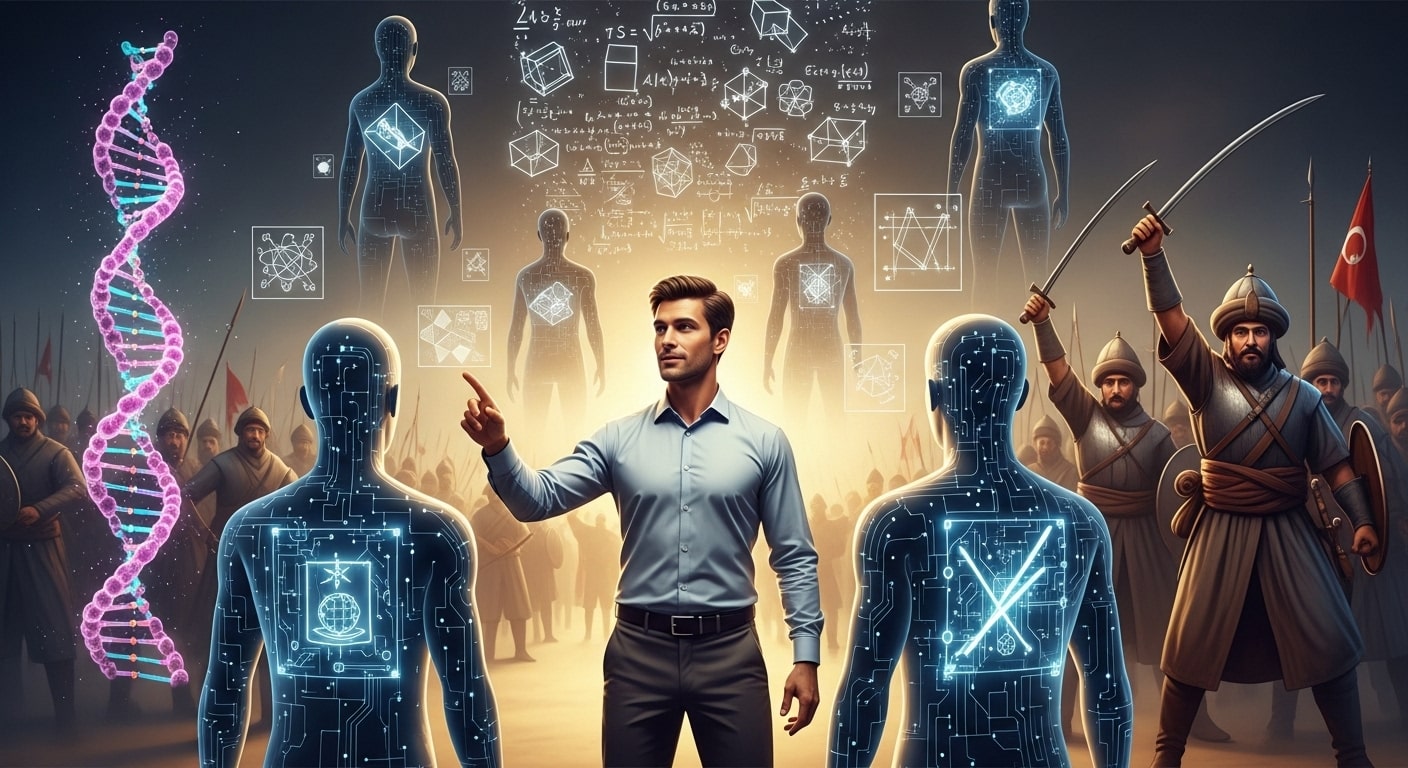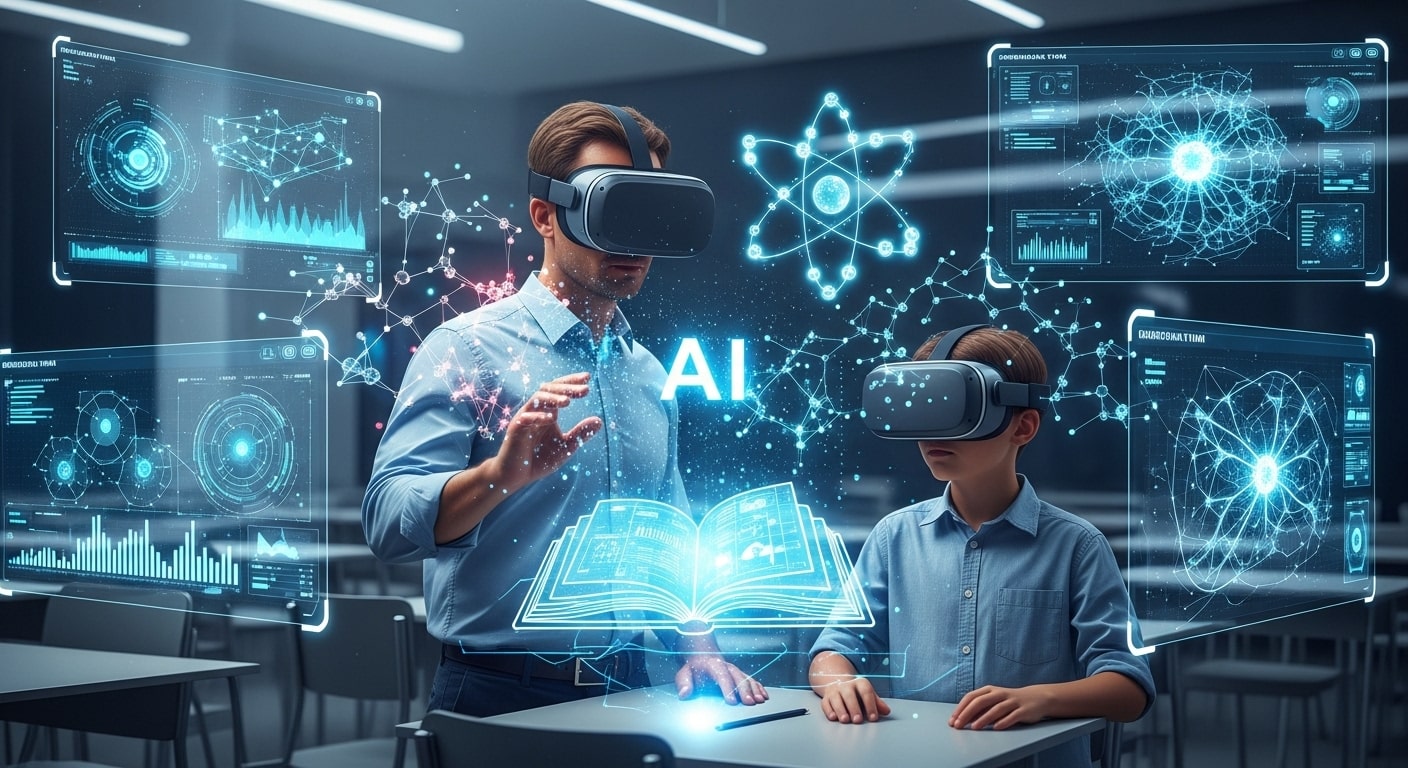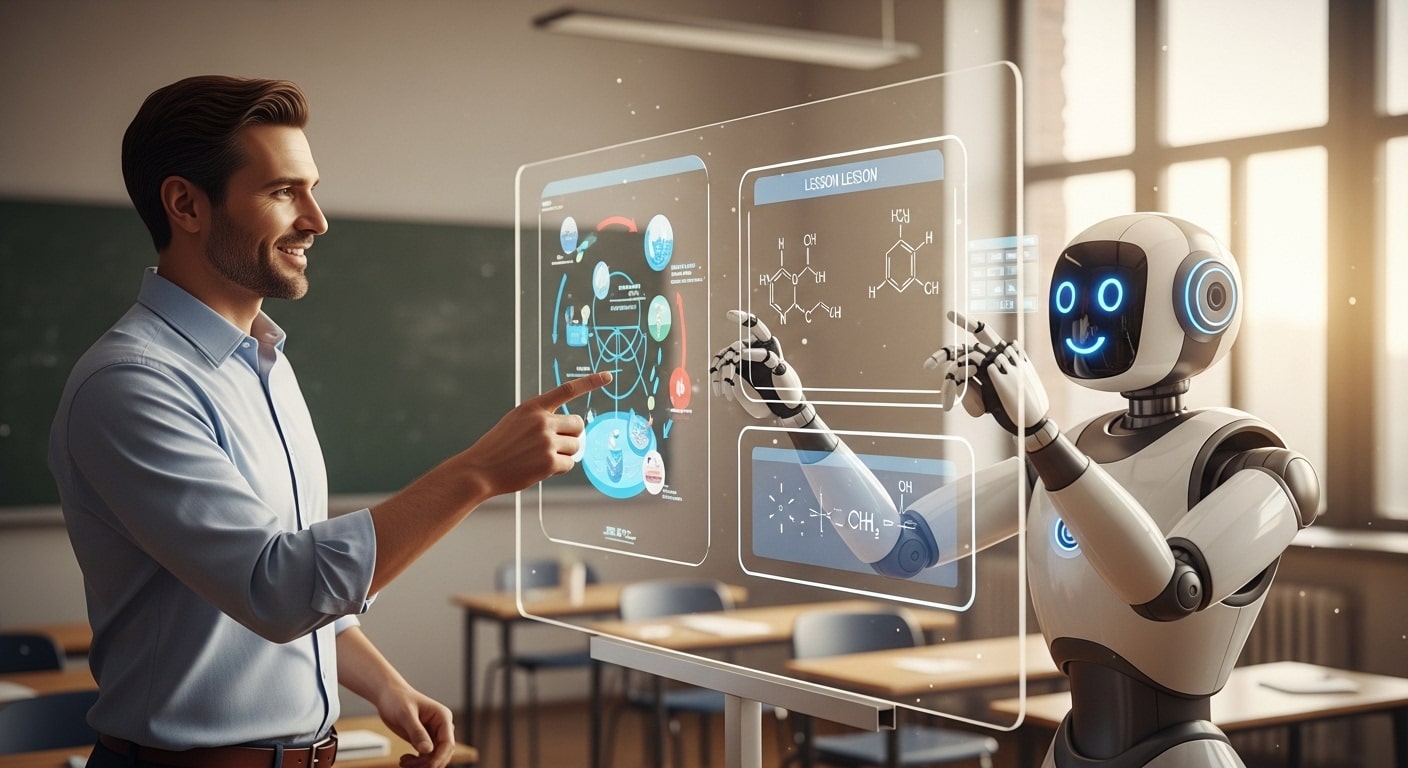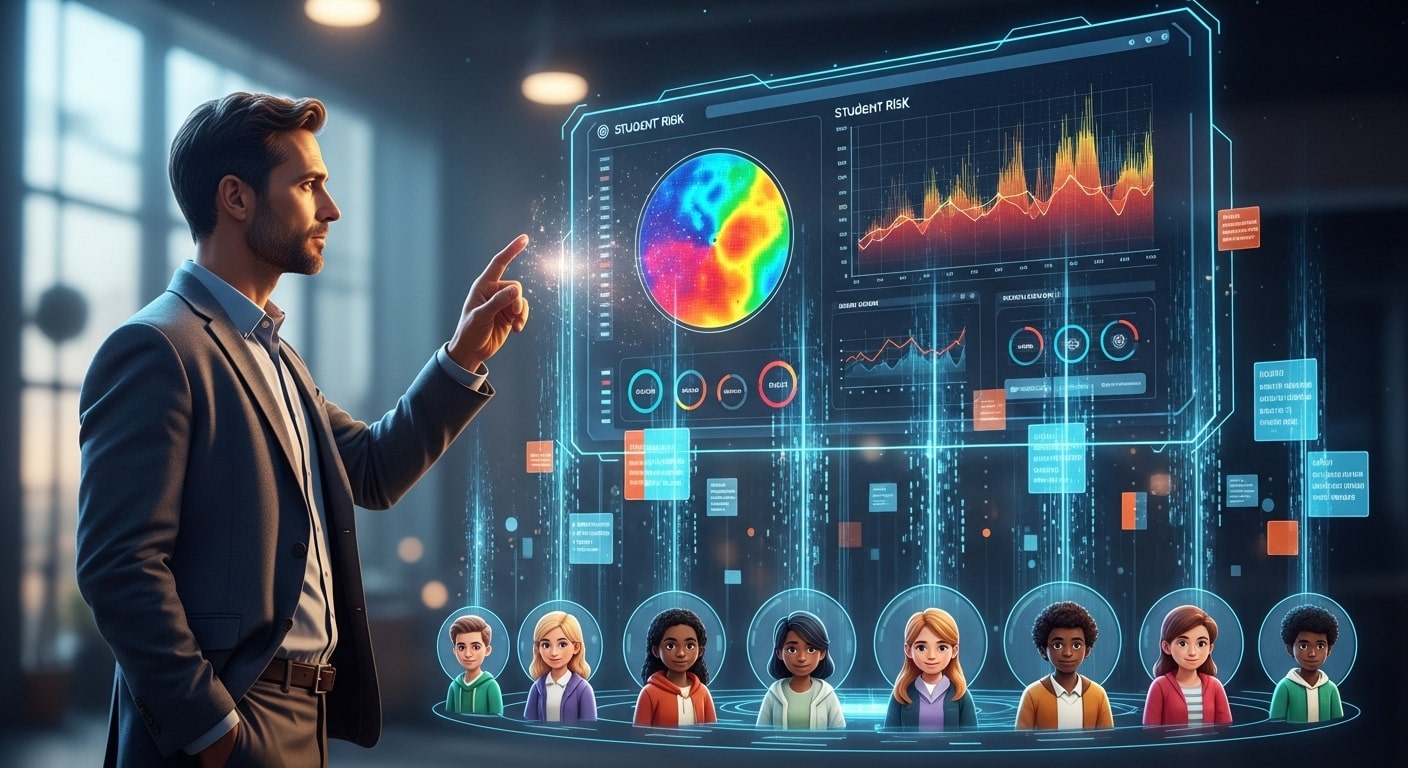While general AI tools like ChatGPT offer broad applications across education, subject-specific AI implementations are transforming how individual disciplines are taught and learned. From mathematics to music, artificial intelligence is providing tailored support for different content areas, addressing unique challenges and enhancing learning in subject-specific ways.
Mathematics and Computer Science
AI is revolutionizing mathematics education through:
Intelligent Tutoring Systems like ALEKS and Mathia that identify precise misconceptions in student understanding and provide targeted remediation. These systems can recognize not just whether an answer is wrong but why it’s wrong, addressing the specific error in student thinking.
Visual Problem Solving tools that can interpret hand-drawn mathematical work, recognize steps in a solution process, and provide guidance at the exact point where a student has gone astray.
Computational Thinking Support that helps students develop algorithmic thinking by visualizing processes, suggesting optimizations, and providing scaffolded coding assistance.
Real-World Application Generators that create personalized word problems connected to student interests while maintaining specific mathematical concepts.
Language Arts and Communication
In language arts, AI supports literacy development through:
Adaptive Reading Platforms that adjust text complexity while maintaining content, helping students access grade-level concepts regardless of reading level.
Writing Analysis Tools that provide formative feedback on structure, style, evidence use, and argumentation rather than just grammar and spelling.
Language Acquisition Support for both native language development and second language learning, with pronunciation feedback, contextual vocabulary building, and personalized practice opportunities.
Literature Exploration Assistants that help students analyze themes, character development, and literary devices through guided questioning and visualization tools.
Science and STEM
Science education benefits from AI through:
Virtual Laboratory Experiences that simulate experiments too dangerous, expensive, or time-consuming for classroom implementation, with AI guiding inquiry and helping interpret results.
Scientific Modeling Tools that help students understand complex systems by creating interactive models that respond to student manipulations and questions.
Data Analysis Assistants that support students in collecting, visualizing, and interpreting scientific data, gradually releasing responsibility as students develop proficiency.
Phenomenon Explanation Generators that create multimodal explanations of scientific concepts tailored to student questions and prior knowledge.
Social Studies and Humanities
In social studies and humanities, AI enhances learning through:
Primary Source Analysis Tools that help students interpret historical documents by providing context, defining period-specific language, and guiding analytical thinking.
Perspective Exploration Systems that present historical events from multiple viewpoints, helping students understand diverse perspectives on complex issues.
Geographic Information Systems enhanced with AI that allow students to explore relationships between geography, culture, economics, and political developments.
Cultural Immersion Experiences that use AI to create responsive simulations of historical periods or different cultures, allowing students to engage in guided exploration.
Arts and Physical Education
Even in highly experiential subjects, AI offers valuable support:
Creative Process Assistants that help students explore artistic techniques, suggest variations, and provide feedback on developing work.
Music Composition and Analysis Tools that allow students to experiment with musical elements and receive guidance on theory application.
Movement Analysis Systems that provide feedback on physical technique in sports, dance, and other movement-based activities.
Performance Preparation Support that helps students practice effectively with responsive feedback and adaptive challenges.
Implementation Considerations
When implementing subject-specific AI tools:
Align with disciplinary practices by selecting tools that reflect authentic methods and thinking in the field.
Balance AI support with independent thinking by gradually reducing scaffolding as students develop proficiency.
Connect across disciplines by identifying opportunities for AI tools to support interdisciplinary learning.
Involve subject matter experts in evaluating and selecting AI tools to ensure disciplinary integrity.
The most effective implementations recognize both the universal aspects of learning and the unique characteristics of different disciplines. By thoughtfully selecting and implementing subject-specific AI tools, educators can enhance learning across the curriculum while maintaining the distinctive thinking and practices that define each field of study.
Want to learn more about implementing AI in your classroom? Check out our next article: “Using AI for Data-Driven Teaching Decisions.”




